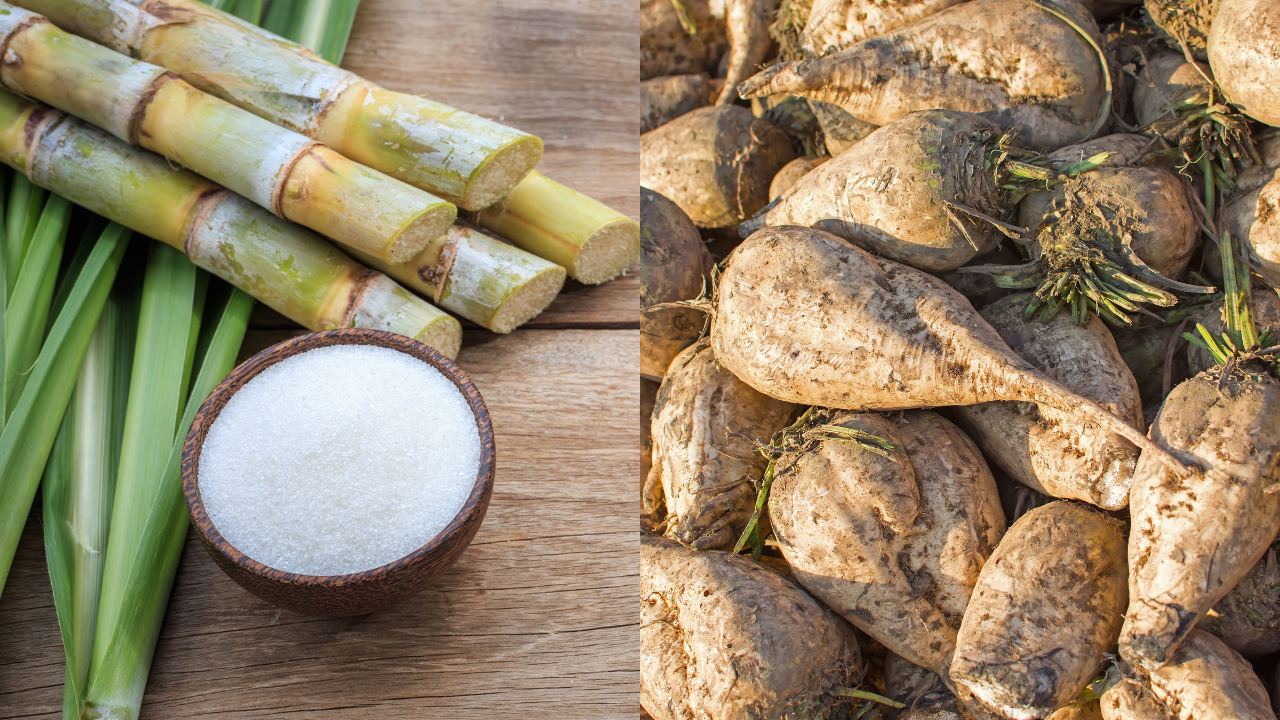In discussions of beet sugar vs cane sugar, the source of the sugar plays a key role in its properties.
In discussions of beet sugar vs cane sugar, the source of the sugar plays a key role in its properties.
Blog Article
A Comprehensive Check Out the Advantages and Uses of Beet Sugar Vs Cane Sugar for Sweetening Options
In the world of sweetening, both beet sugar and cane sugar offer unique advantages and cooking roles, albeit with similar nutritional profiles. While beet sugar flaunts a neutral taste ideal for different dishes, cane sugar enriches meals with subtle sugar touches. However, the environmental factors to consider of their manufacturing are starkly different, painting an intricate image of sustainability. This association invites a deeper exploration into just how each sugar impacts not only our palates however likewise the earth.
Origins and Handling Approaches of Beet Sugar and Cane Sugar
Beet sugar and cane sugar, two predominant sugar, stem from extremely unique plants and undergo different handling approaches. Beet sugar is drawn out from the sugar beet, a root vegetable, largely grown in cooler climates.
Conversely, cane sugar comes from the sugarcane plant, an exotic grass. Its processing begins with gathering the cane, squashing it to acquire the juice, and after that boiling this fluid to form sugar crystals.
Nutritional Contrast: Beet Sugar Versus Cane Sugar

When contrasting the dietary content of beet sugar and cane sugar, it ends up being evident that both types provide a comparable power value. Each provides concerning 4 calories per gram, primarily as sucrose, which is an easy carb. This resemblance extends to their absence of crucial nutrients; neither type of sugar consists of substantial amounts of vitamins or minerals. Both beet and cane sugar are 99.9% pure sucrose, making them basically identical in terms of calorie material and dietary account.
However, small differences may develop from the very little trace components that continue to be after processing, though these are too minor to impact overall wellness. For example, cane sugar can keep traces of molasses, depending upon the level of refining, which might add small amounts of calcium, iron, and potassium. Beet sugar, on the other hand, commonly undergoes a process that eliminates these micronutrient better, resulting in an also purer kind of sucrose.
Culinary Makes Use Of and Taste Profiles
Despite their dietary resemblances, beet sugar and cane sugar diverge notably in their cooking applications and flavor subtleties. Beet sugar, obtained from sugar beets, typically has a really neutral taste, making it a recommended selection in baking where it seamlessly incorporates without altering the taste profile of various other ingredients.
Cooks and home cooks alike pick sugars based on these features. While both sugars work in a similar way in terms of sweet taste and physical buildings, the small taste difference can affect the outcome of a meal significantly, assisting the selection in between beet you can find out more and cane sugar based on the preferred outcome in culinary productions.
Wellness Implications of Consuming Beet and Cane Sugars
Although beet sugar and cane sugar are frequently made use of interchangeably in food preparation and cooking, their health and wellness implications can differ discreetly as a result of their distinct handling approaches. Both sugars provide regarding the very same amount of calories and carbohydrates per teaspoon, basically supplying similar energy contributions without any kind of intrinsic nutritional benefits. Nevertheless, the refining procedure for each and every sugar can alter the visibility of trace minerals and compounds, although these variations are normally marginal and not significant enough to impact one's health and wellness meaningfully.
The main wellness interest in both types of sugar pertains to their contribution to excessive calorie intake, possibly bring about weight gain, and associated diseases like kind 2 diabetes mellitus and heart condition when eaten in big amounts. As a result, no matter the source, moderation is type in consuming beet or cane sugars. Health professionals commonly suggest limiting added sugars in any kind of kind to preserve ideal health outcomes.
Ecological Impact and Sustainability of Sugar Manufacturing

On the other hand, sugar beet processing often tends to generate huge quantities of pulp waste, which can be repurposed as animal feed or transformed into bioenergy, thereby reducing some ecological influences (beet sugar vs cane sugar). Eventually, the sustainability of sugar manufacturing depends upon adopting even more green farming strategies and waste management practices to decrease the eco-friendly impact of both sugar types

Conclusion
In final thought, both beet and cane sugars use important sweetening alternatives, each with unique benefits and disadvantages. While they are nutritionally similar, their growing impacts and taste accounts differ significantly. Beet sugar is remarkable for its sustainability and neutral taste, whereas cane sugar is treasured for its rich taste. Consumers must consider these aspects, along with the environmental effects of sugar production, to make enlightened choices regarding sugar intake that align with cooking demands and honest worths.
Report this page